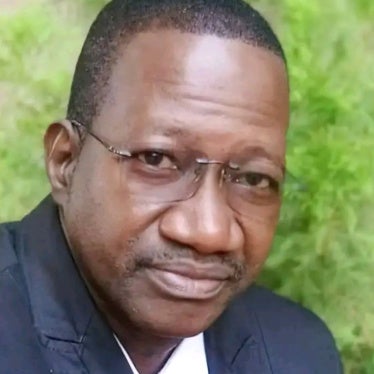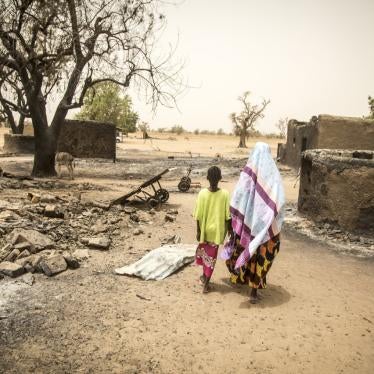It has been more than three months since jihadists waged an offensive south towards Sévaré and Mopti. France and Mali, supported by battalions from West Africa, immediately pushed back. I went to Mali to make an initial assessment of this war with regards to human rights. My conclusion: in that regard, the situation is still far from stable.
Sandwiched between the government controlled south and French and Chadian controlled extreme northeast is a no man’s land with regards to rule of law and civilian protection. In the reconquered regions, the Malian army is occupying huge areas, control of which it had lost in early 2012.
Few gendarmes and police have deployed to the north, with the exception of the towns of Timbuktu, Gao, and Douentza. The justice system there is nonexistent. The northernmost public prosecutor is located in Mopti. In all the small cities, villages, and nomadic camps – especially along the Niger River – the forces that are supposed to guarantee rule of law are absent, and, in the vacuum, undisciplined and violent members of the Malian army have already committed serious acts of violence.
An initial assessment gives cause for concern: around 20 extrajudicial killings and about the same number of disappearances (to speak only of the confirmed cases), around 30 arbitrary arrests, as well as several established cases of torture and mistreatment of prisoners by soldiers.
“Realists” will no doubt say that the incidence of these violations remains limited. And, in reality, they do not appear to be systematic or planned by high-ranking officers. The work by organizations such as ours has undoubtedly helped raise the alarm about the seriousness of the abuses committed to date.
Clear messages by the Malian authorities and their international partners, including France, have probably prevented the situation from getting out of control. For the first time in the history of the country, six soldiers – including a captain – have been subject to an investigation, following the disappearance of five civilians in Timbuktu. They have been recalled to Bamako. They should thus be the first to appear before Mali’s Military Tribunal, which exists on paper but has never functioned.
To encourage this progress, the gendarmerie must be provided strong support, without which it will not be able to stand up to members of the army who are better armed and used to acting with complete impunity. Furthermore, all violations allegedly committed by members of the Malian army must be promptly investigated.
The human rights challenges are significant. Whether it concerns training the Malian Army in the laws of war (an aspect included in the European Union’s training program to be extended to four battalions of the Army), or the fight against corruption (which played a significant role in giving rise to the current crisis and deprives the country of resources required for respecting social rights), or the setting up of a “truth, justice, and reconciliation” process, Mali has a long way to go before the cycle of rebellion/repression/impunity can be finally broken.
A national Commission for Dialogue and Reconciliation was recently created by decree, but its mandate is too broad, and its top-down method of appointing commissioners risks depriving it of the widespread support it would need. Mali should not try to do without a real, credible truth and reconciliation commission, made up of respected individuals from different sectors of society and based on the most successful examples, such as that of Sierra Leone. This commission will have the important task of making recommendations based at tackling the causes of the current crisis.
Mali’s human resources and history are exceptional. In 1991, hundreds of young students sacrificed their lives for their desire for liberty and democracy, after a military dictatorship that lasted too long. In recent years, this democracy has been eaten away by trafficking and corruption, hastening the collapse of the Army, loss of control of the North, and a major political crisis.
Tuareg rebels from the MNLA, followed by the jihadist groups AQIM, MUJAO and Ansar Dine, took advantage of this situation to impose their respective “agendas,” with some of their members allegedly implicated in crimes that could fall under the jurisdiction of the International Criminal Court.
The possible short-term military victory over the jihadist groups must not allow us to forget the much deeper and more complicated issues which in large part gave rise to the Malian crisis. The Malian government and its international partners must put the rights of every Malian woman and man, and meaningful improvements in the rule of law, at the heart of their efforts going forward. The United Nations “stabilization” mission that will follow the current intervention should similarly place this objective at the top of its own agenda. Malians deserve nothing less.
Jean-Marie Fardeau (Twitter@jmf60) is the France Director at Human Rights Watch.








